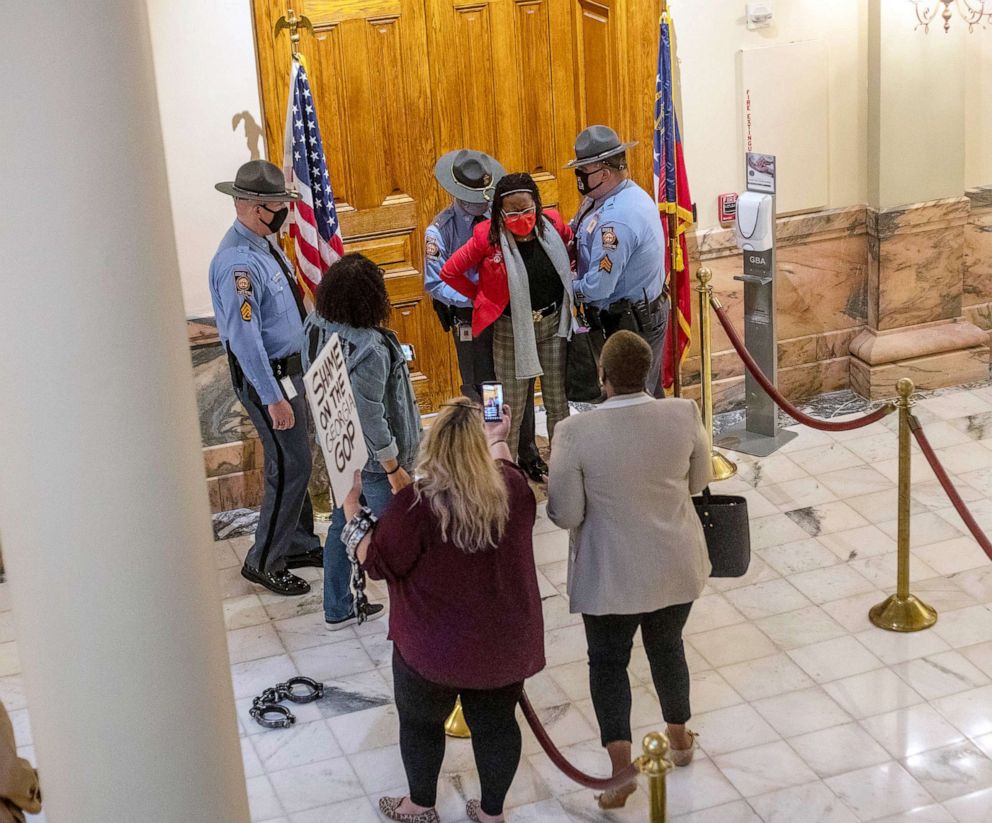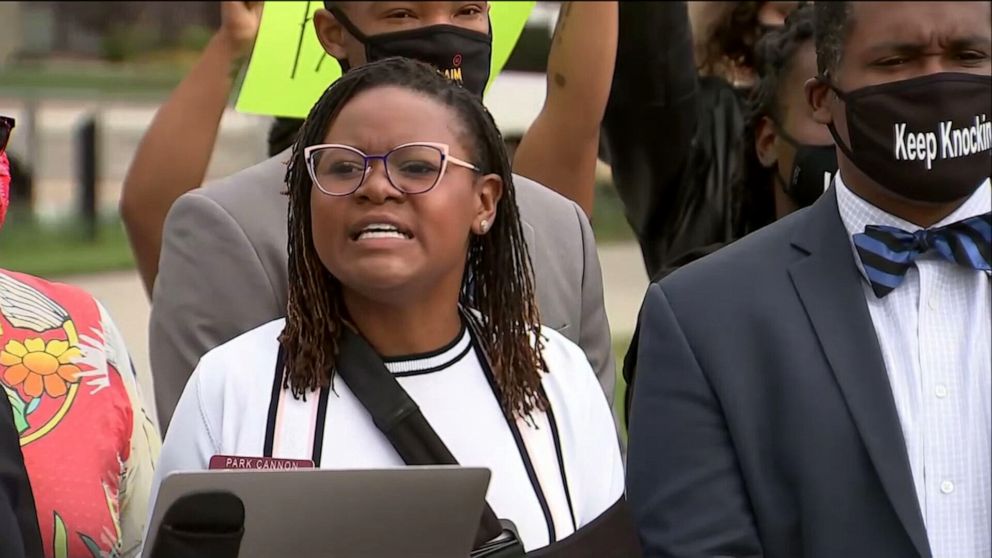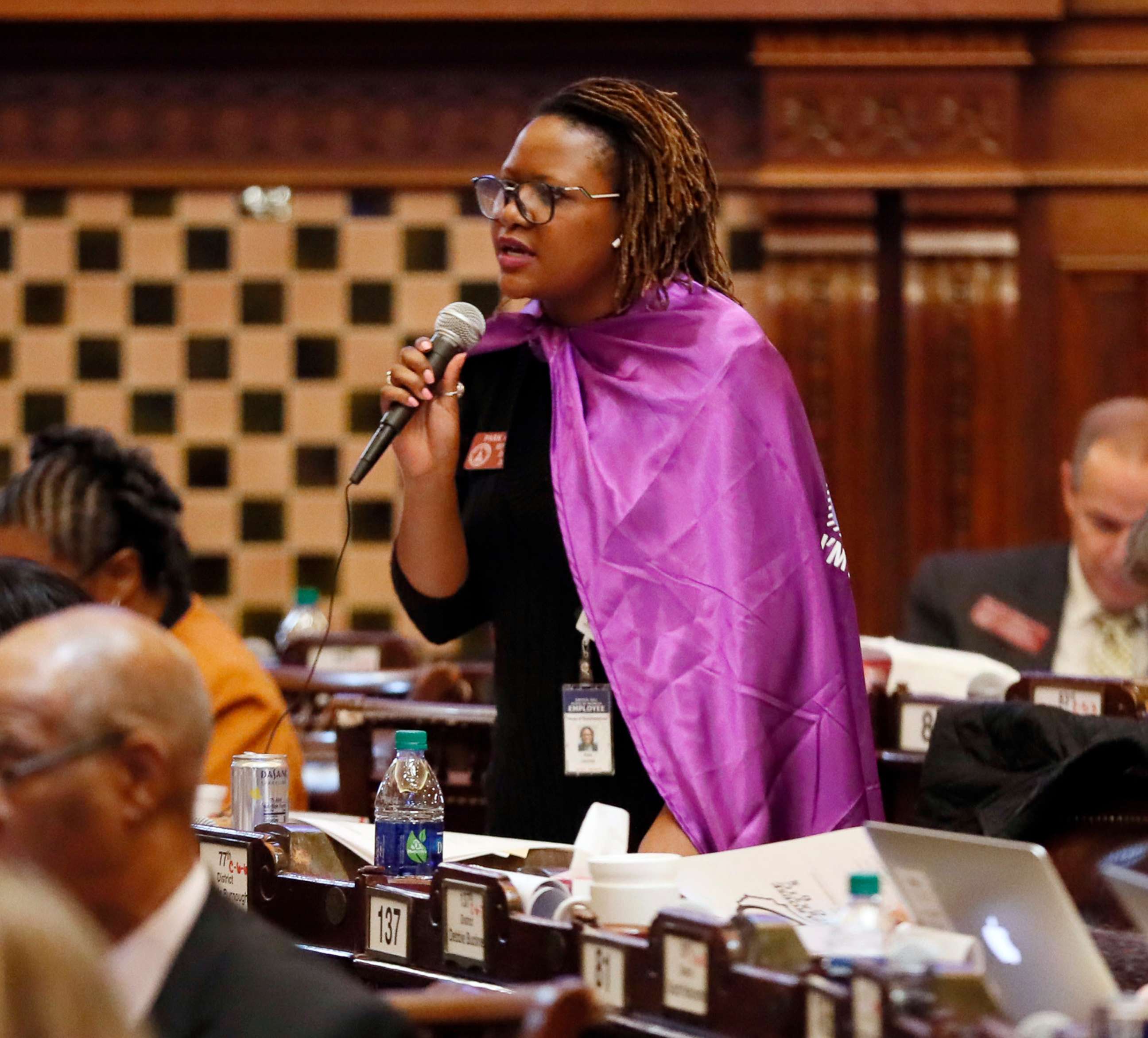Georgia lawmaker arrested after knocking on Gov. Kemp's door urges Americans to 'keep knocking'
Rep. Park Cannon won't be prosecuted, the district attorney announced Wednesday.
Georgia state Rep. Park Cannon, the Democrat who was arrested for knocking on Republican Georgia Gov. Brian Kemp's door as he signed the state's voting bill, says she will "keep knocking."
"I ask you, Georgia, to keep knocking," Cannon said at a news conference Thursday outside the state capitol in Atlanta. "America, keep knocking. All of the marginalized people, keep knocking."
On March 25, Cannon repeatedly knocked on Kemp's office door at the statehouse while he gave remarks after signing into law new voting requirements in Georgia following the results of the 2020 election that flipped the traditionally red state to blue.
Cannon was put in handcuffs and forcibly removed from the statehouse.

Fulton County District Attorney Fani Willis announced Wednesday that Cannon won't be prosecuted.
Willis said, "While some of Representative Cannon's colleagues and the police officers involved may have found her behavior annoying, such sentiment does not justify a presentment to a grand jury of the allegations in the arrest warrants or any other felony charges."
Cannon on Thursday thanked Willis and the district attorney's office "for the thorough and complete investigation of the facts... that led to the dismissal of the felony charges that I faced."

"The joy that I feel for the dismissal of the charges I face is tempered by the fact that I should have never been arrested," she said.
Cannon said she knocked that day so Kemp would see the disappointment on her face.
"I knocked on the door where my colleagues had gathered," she said. "I wanted to be in the room."
"I was not disruptive. I was persistent," she said.

Cannon said Thursday, by signing the law, "Brian Kemp began to dismantle everything Black people in America have achieved, earned and worked for since arriving to the Savannah port."
"We should not sit quietly while white men behind closed doors work to preserve their white power and white privilege," she said, calling the law "one of the most racist pieces of legislation in my lifetime."
Democrats say the sweeping overhaul of Georgia's election code will make it harder for minorities to vote and imposes unnecessary restrictions, including preventing anyone but poll workers to give food and water to voters waiting in line. Long lines are especially common in the Atlanta metro area.
President Joe Biden echoed voting rights advocates, calling the bill "Jim Crow in the 21st century."
But Republicans have claimed it expands voter access in the state, for example, by adding a second mandatory Saturday of early voting for primary and general elections.
Republicans said the bill was necessary, in part, because of diminished trust in Georgia's elections. Kemp has said the law will make it "easy to vote and hard to cheat." But there is no evidence of widespread voter fraud in Georgia's November or January elections.
Cannon also said she wants to make sure residents understand the new voting rules.
"Until we have changed the new law, we must understand the new law," she said.
ABC News' Quinn Scanlan and Julia Jacobo contributed to this report.




